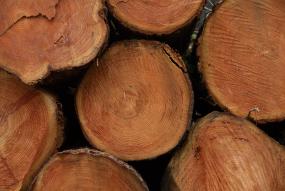
Timber and timber product legislation
Complying with timber legality legislation is an essential component of FSC certification. In fact, compliance with all applicable laws, regulations and nationally ratified international treaties, conventions and agreements is our first principle of responsible forest management.
All countries with forests have rules for forest ownership and management, and trade, but the level of enforcement of these rules varies across the globe. For this reason, several governments have adopted ‘legislation for timber legality', laws that ban the trading of timber that is harvested illegally.
UK and EU timber legislation
In 2003, the EU adopted the Forest Law Enforcement, Governance and Trade (FLEGT) Action Plan to address illegal logging and associated trade on the basis of cooperation between producers and consumers.
This led to the EU Timber Regulation (EUTR) 2013, which prohibits operators from placing illegally harvested timber and timber products on the EU market.
Following the UK’s withdrawal from the European Union, the EUTR no longer applies in England, Scotland and Wales. It was replaced with the UK Timber Legislation (UKTR) in 2021. UKTR was developed from and aligns with EUTR legislation and has the same requirements as current EU systems. These regulations affect all those that first place timber on the EU or UK markets and traders further down the supply chain.
The European Union replaced the EUTR with the EU Regulation on Deforestation-free Products (EUDR) in 2023, a landmark EU law to minimise the EU’s contribution to global deforestation and degradation. Whilst it is a European legislation, it has global impacts.
The EUTR, UKTR and EUDR require relevant organisations to carry out due diligence in respect of affected forest and/or deforestation commodities.
“Though certification should never be viewed as an automatic ‘green lane’ to abiding by the EU’s latest sustainability requirements, holding one from an internationally recognised and respected scheme owner demonstrates the same commitment to environmental protection reflected in the EUDR’s mandate.” Control Union
FSC and due diligence
Due diligence is the rigorous process of ensuring that data and information collected relating to the chain of custody of a product or commodity is accurate. It requires organisations to identify and examine potential risks along the supply chain and to mitigate those risks.
Organisations carrying out due diligence for EUTR, UKTR and EUDR can use FSC certification as a key element of risk assessment and mitigation. However, trading in FSC-certified materials does not result in exemption from the due diligence required.
FSC Risk Assessments assess the risk of sourcing material from supply areas and establish mitigation measures to address identified risks. To reduce the likelihood of sourcing material from unacceptable sources, organisations that use FSC Controlled Wood must also use risk assessments. FSC is fundamentally changing its risk evaluations for forests. The new risk assessments will be of use for the production of FSC Mix products within the current Controlled Wood concept; but will also serve as a tool for risk evaluation in regard to new legal requirements, such as the EUDR.

The Timber and Timber Products Placing on the Market Regulations (UKTR) and UK FLEGT Regulations have applied in Great Britain since 1 January 2021. These regulations affect all those that first place timber on the UK market, as well as traders further down the supply chain.

The European Union Regulation on Deforestation-free Products (EUDR) is the new EU initiative to limit deforestation and degradation caused by forestry and agricultural activities all over the world.
We have made it our mission to support our certificate holders through the EUDR compliance process as much as possible. Being FSC-certified is already a very strong start – and our tailored EUDR solutions will help take certificate holders the rest of the way.
Green claims and anti-greenwashing legislation
Governments are increasingly introducing laws and regulations designed to prevent businesses from making misleading or unsubstantiated environmental claims about their products or services, often called "greenwashing."
“Greenwashing presents a significant obstacle to tackling climate change. By misleading the public to believe that a company or other entity is doing more to protect the environment than it is, greenwashing promotes false solutions to the climate crisis that distract from and delay concrete and credible action.” United Nations
FSC is committed to combating greenwashing and ensuring that all environmental claims associated with our certified products are credible, verified and substantiated. A report by OECD (Organisation for Economic Co-operation and Development) acknowledges FSC’s “trusted marks for sustainable forestry practices” and highlights our rigorous certification and commitment to transparency as effective tools in empowering consumers and combatting greenwashing.
FSC supports the proposed EU Green Claims Directive, the Empowering Consumers Directive and the UK Green Claims Code (read our statement: FSC stands with the EU Green Claims Directive). These legislations are critical in the fight against greenwashing and ensuring that consumers have access to accurate, reliable, and verifiable information.
"Clear, accurate environmental claims empower consumers to make choices that truly drive positive environmental impact – something we all have a stake in,” Ana-Maria Băban, Acting Commercial Director, FSC International
